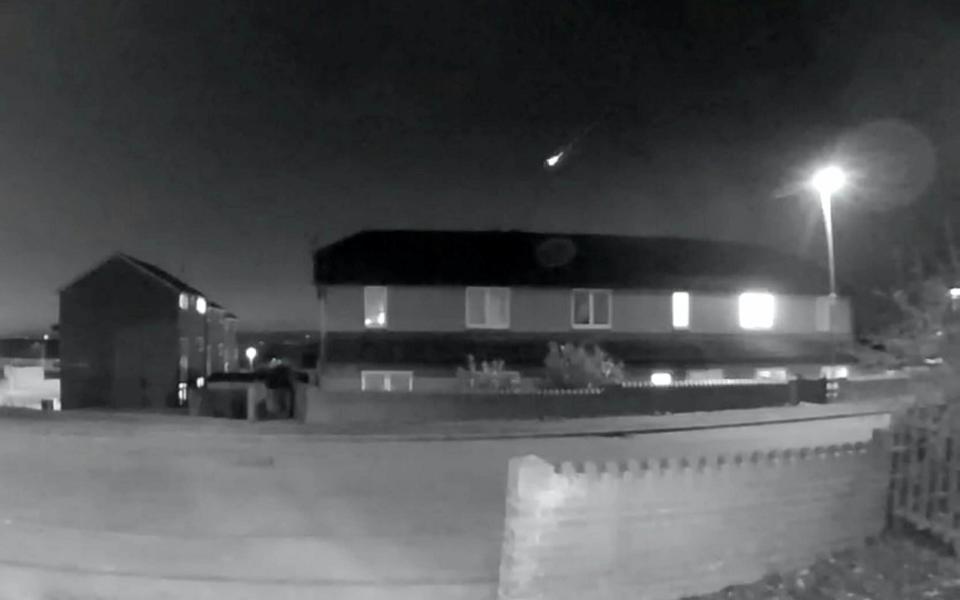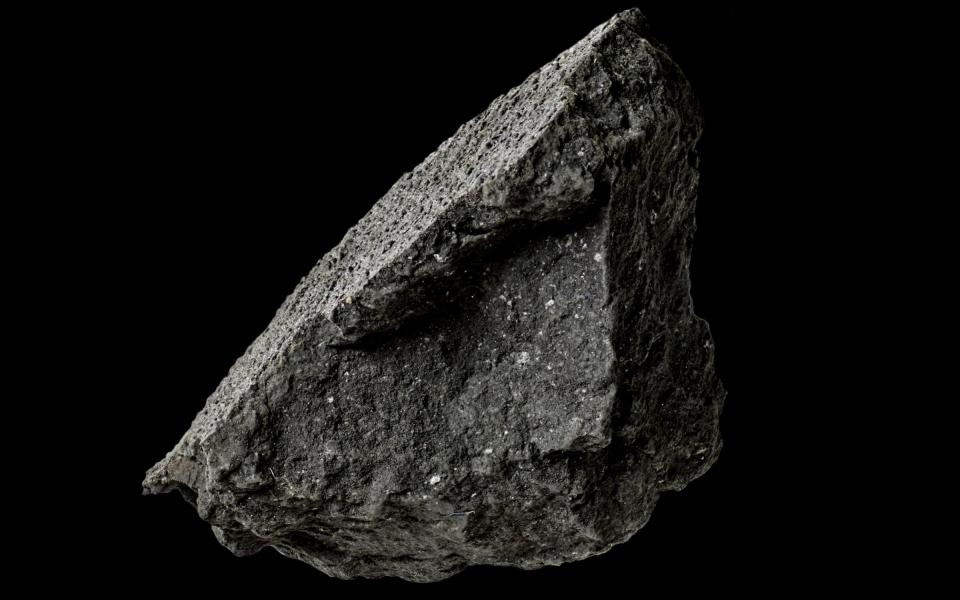Natural History Museum urges meteorite hunters to turn in pieces they may find in the New Forest

When a sonic boom was heard across swathes of south west England last month, scientists hoped it might herald the arrival of meteorite fragments from outer space, adding yet more to the sum of knowledge about the origins of the universe.
Now experts have pinpointed the area where the fragments are likely to have fallen, raising the prospect of valuable material being recovered for analysis.
By measuring the precise timings of the sonic boom caused by the meteorite as it hurtled across Devon, Somerset and Dorset they have identified the New Forest as the likely landing place.
Scientists have said they think fragments could be on the ground between Verwood, in Dorset and Romsey, in Hampshire, prompting what is likely to be an excited search by meteorite hunters.
But the amateur astronomers have been urged to treat any finds with care in order to preserve their scientific value - and not break Covid restrictions while doing so.

The hunt was triggered when a fireball was seen flying across the sky at about 3pm on 20 March, setting off a sonic boom.
The loud bang was most intense over Dorchester, with security cameras eight miles away at East Fleet Touring Park, near Weymouth, capturing the noise as it shook homes and windows.
The sound was also recorded with accurate timing by OptaSense, a Fibre Optic sensing company based near Wool in Dorset, allowing experts from UK Fireball Alliance (UKFall) to plot the path of the fireball.
That led researchers to conclude that the fireball may have dropped a meteorite in or near the northern part of the New Forest in Hampshire a few minutes later.
Nick James, of the NEMETODE meteor network of cameras monitoring the skies across the British Isles, said “We were really lucky to have two good measurements of the timing of the sonic boom, along with many reports of its direction. Combined with the dashcam footage, we have been able to estimate its path across Dorset. We’ll keep refining the calculations, but we now know generally what happened.”
Dr John Mason of the British Astronomical Association’s Meteor Section, added: “Triangulating using sonic boom reports isn’t something we’ve done before, but we’ve been lucky with our data this time so have quite a good idea of where this meteoroid went.”

The landing follows one on February 28, when a 300g fragment of another meteorite plummeted onto the driveway of the Wilcock family in Winchcombe, Gloucestershire.

Now UKFall, along with scientists at the universities of Glasgow and Manchester, and the Natural History Museum, have urged dog walkers, hikers and day-trippers in the New Forest to report any discoveries of the latest fragments.
Dr Katherine Joy, of the University of Manchester, told The Telegraph: said: “We want to alert people in the area to keep an eye out for any unusual rocks that they might come across, but are not encouraging people to travel there, given current UK government COVID guidelines about movement around the country.
“It is a very challenging terrain in the New Forest area, with so much woodland and low vegetation scrub cover, so it would have to be pretty serendipitous that any meteorites are spotted. The best chance is if someone spots something landing on their driveway, local road or back garden, as happened in the recent Winchcombe meteor event.”
She added: “If you do find a meteorite on the ground, ideally photograph it in place, note the location using your phone GPS, don't touch it with a magnet, and, if you can, avoid touching it with your hands.
“Please do exactly what the Wilcock family did so brilliantly in Winchcombe, and pick it up in a clean bag or clean aluminium foil if possible.”

